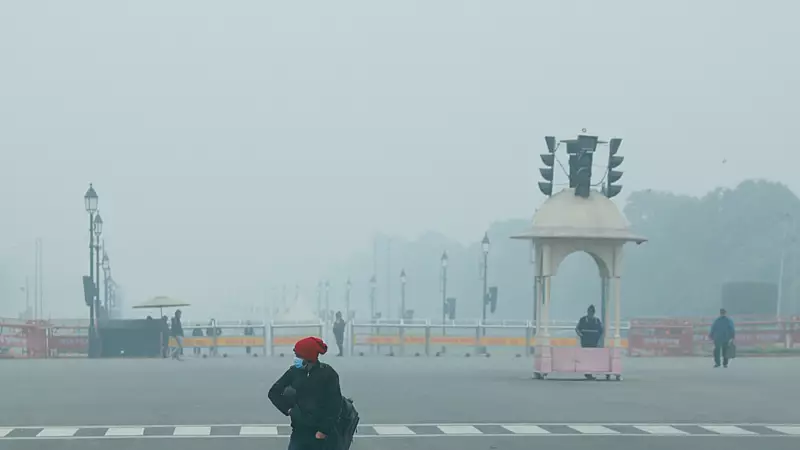
India's capital and northern regions are choking on toxic air sustained by an equally toxic political culture, according to leading public intellectual Pratap Bhanu Mehta. In his powerful analysis published on November 14, 2025, Mehta argues that political denial, distraction, and division have created a perfect storm where air pollution continues unchecked.
The Four Faces of Political Toxicity
Mehta identifies four key political strategies that prevent meaningful action on air pollution. Denial persists across the political spectrum, with leaders refusing to acknowledge the gravity of the crisis. Distraction tactics keep citizens focused on political circuses rather than substantive issues. Division along identity lines and vested interests blocks potential coalitions for change. When all else fails, politicians invoke Destiny - framing pollution as an inevitable price of modernization that current generations must pay for future prosperity.
Despite the severe health implications, air pollution has never become a decisive voting issue in India. Mehta notes that even environmentally conscious citizens don't base their electoral choices on pollution concerns. This stems from the lack of meaningful differences between political parties on environmental policies and the fact that the rewards of effective anti-pollution measures extend beyond typical election cycles.
Elite Indifference and Scientific Illiteracy
Perhaps most striking is the pervasive indifference among India's elites who could drive change without significant personal cost. Mehta observes that discussions among Delhi's affluent classes reveal not scientific illiteracy but something more concerning - ideological attachment to science as a symbol rather than a method. They revere the idea of science without embracing scientific habits of mind.
This elite disengagement allows politicians to deploy performative gimmicks like odd-even vehicle schemes, vacuum trucks, and traffic island purifiers with confidence that no influential voices will challenge their effectiveness. The media largely functions as a willing accomplice in this charade, while environmental activism faces suppression and branding as "foreign-funded" interference.
Breaking Through the Complexity Gambit
Mehta challenges the common argument that air pollution is too complex to solve effectively. While acknowledging the multifaceted nature of the problem spanning urban design, transport, agriculture, industry, and construction, he emphasizes that most countries manage air quality better than India. The solution requires confronting multiple sectors simultaneously, but this complexity often serves as a convenient alibi for inaction.
India already possesses excellent organizations like the Centre of Science and Environment and Sustainable Futures Collaborative that can guide scientific and regulatory responses. The real barrier, Mehta argues, isn't technical complexity but political will. What's labeled as "state incapacity" often represents politically induced constraints - fragmented jurisdictions, weak local governments, and understaffed regulators that reflect deliberate political choices rather than natural limitations.
Specific actors could make different choices if they chose to exercise their agency. Nothing prevents the Prime Minister and relevant chief ministers from coordinating a mission-mode response to seasonal crop burning. Cities like Gurgaon could implement efficient waste management systems with state government support. Television channels could question why pollution norms for thermal plants were relaxed.
The Path Forward: Naming and Shaming
Mehta proposes a clear solution: Each responsible actor in the chain must be named and shamed to prevent "state incapacity" from masking political choice. The Commission on Air Quality Management could transform into a genuine bully pulpit demanding accountability through open hearings and compelling ministers to answer pointed questions.
The stakes couldn't be higher. Air pollution has become a growth inhibitor that threatens both public health and India's economic future. Yet meaningful, substantive speeches from the highest levels of government remain conspicuously absent. Journalists rarely press leaders with serious, accountability-focused questions.
Mehta warns that if this toxic political culture continues unchallenged, it will evolve into something even more dangerous - a toxic distemper that fundamentally corrodes democratic governance. The message is clear: ignore this political failure at your peril, for the shape of India's growth story and the health of its citizens hang in the balance.





